Lemur Love
A discussion with our Global Partner in Madagascar
We celebrated the International Day for Biological Diversity with Lemur Love, a non-profit organization dedicated to protecting Madagascar’s unique and beautiful lemurs! The organization’s long-term research presence is a vital tool for preserving biodiversity and engaging in meaningful relationships with people living in proximity to the biodiverse forests of Madagascar.
Through captivating photos and heartwarming success stories, we were transported to the dry spiny forests and habitats of this incredible island. We learned more about the latest scientific research on ring-tailed lemurs in Madagascar, how the organization is helping Malagasy scientists build capacity, and the ways in which Lemur Love forges relationships with those living in and around lemur habitats.
Hearing from Lemur Love’s Founder, Dr. Marni LaFleur and the In-Country Director, Dr. Seheno Andriantsaralaza will surely inspire and educate you on the crucial role lemurs hold in maintaining healthy and balanced ecosystems in Madagascar!
Learn more about our partnership with Lemur Love here!
Presentation Date: May 24th, 2023
Dr. Marni LaFleur
Founder & Director of Lemur Love
 Dr. Marni started Lemur Love as a mechanism to protect lemurs in southwestern Madagascar, after witnessing deforestation and poaching of wild ring-tailed lemurs. She now recognizes that conservation is much more about humans than animals and that the historical, political, and social influences within Madagascar are important considerations to conservation agendas.
Dr. Marni started Lemur Love as a mechanism to protect lemurs in southwestern Madagascar, after witnessing deforestation and poaching of wild ring-tailed lemurs. She now recognizes that conservation is much more about humans than animals and that the historical, political, and social influences within Madagascar are important considerations to conservation agendas.
In addition to being a member of the IUCN SSC Primate Specialist Group and the IUCN SSC IUCN SSC Primate Specialist Group Section for Human-Primate Interactions, Dr. Marni is also an Associate Professor at the University of San Diego, where she teaches Biological Anthropology. She is passionate about the rights of both animals and humans, fairness, and equity, and aims to instill these values in her students.
Dr. Seheno Cordaunt-Andriantsaralaza
In-Country Director of Lemur Love
 Dr. Seheno oversees all Lemur Love staff and programs within Madagascar. Seheno earned her Ph.D. at the University of Antananarivo where she focused on the seed dispersal of Malagasy baobab trees. She had a life-changing experience when she worked at the NGO Reniala Lemur Rescue Center, in that she fell in love with lemurs and became an advocate for their conservation.
Dr. Seheno oversees all Lemur Love staff and programs within Madagascar. Seheno earned her Ph.D. at the University of Antananarivo where she focused on the seed dispersal of Malagasy baobab trees. She had a life-changing experience when she worked at the NGO Reniala Lemur Rescue Center, in that she fell in love with lemurs and became an advocate for their conservation.
In addition to her role at Lemur Love, Dr. Seheno is the manager of the Lemur Conservation Network, and a member of the IUCN Primate Specialist Group’s Section for Human-Primate Interactions. Seheno’s collaborative research on baobabs is currently funded by the Explorers Club Discovery Expedition Grant and PEER-USAID. She was recently named one of the Explorer’s Club 50 people changing the world!
Q&A
Questions from audience, with responses from Dr. Marni LaFleur and Dr. Seheno Andriantsaralaza
Madagascar’s [human] population has taken over most of this large island. Famine has recently occurred on the island. What efforts are being made to educate people on birth control and not eating wildlife?
I will gently suggest a reframing of this question. We know that poverty, and particularly extreme poverty, is the root cause of biodiversity loss in Madagascar and in other regions/nations with high biodiversity and high poverty. Extreme poverty correlates with low development (living without electricity, sanitation, food security, health care) and low literacy. Low development and literacy result in individuals, particularly girls, having little choice or power. If we work towards supporting empowerment and education of young people, particularly girls, they will have more opportunities to earn and provide for themselves and their families. Their choices are different and favorable for biodiversity conservation and sustainable development. The problem therein is not that people are uneducated on birth control and consumption of wildlife, but rather that they are systematically deprived of dignified living. If we work towards the UN SDGs which prioritize improving life quality, women will choose to have fewer children (and start later in life) and prefer to consume easily accessible proteins (i.e. domesticated species). [ML]
Any efforts should also consider the various contexts and aspects in different localities in Madagascar. For example, it is not true saying that all Malagasy people are eating wildlife because in some places, it is culturally forbidden to eat wildlife while in other places, there are just no options for people, if they want to survive and feed their families, they will have to eat what is accessible. Also, I don’t think that the primary efforts should be « educate » people to do birth control and to not eating wildlife, the primary efforts should be how can we help people to have daily life in dignity where children and young people can have education, families have access in medical care and sanitation. That said, population demography is a big issue. I just think the approach to tackle this issue should be assessed differently. [SA]
If we succeeded in eliminating pests like the mosquitoes that carry malaria, Zika, West Nile virus, yellow fever, et al., what would be the adverse effects up the food chain?
Eliminating mosquitoes could have catastrophic effects on food webs and ecosystems, and we don’t know what organisms would then fill the mosquito niche (or the effects these would have). Gene editing techniques like CRISPR that reduce or eliminate viral pathogens are likely the most promising way of decreasing the adverse effects of mosquito-borne diseases in humans. [ML]
With such high corruption, how does money get distributed to support your causes? Do we know why the government is so ineffective?
We raise all of our own funding through donations, grants, and contact work (like for film companies). None of our funding is linked to government agencies within Madagascar.
Corruption is a problem in many developing countries and is one of the legacies of colonialism. Here is an overview of why/how corruption occurs in developing and economically poor nations. [ML]
When we implement our programs, we first built a trusting relationship with local communities and Malagasy employees. Our funds don’t go to the government. This is why we work at local scales, we know exactly where and for whom our funds go [SA].
Do you know of the Uganda CTPH program of Dr. Gladys Kalema-Zikusoka, working with mountain gorillas and adjacent villages?
Yes, she is wonderful and an inspiration to all! [ML]
Has Dr. Charlotte Uhlenbroek continued her work with lemurs? Her “extra” on the DVD was fascinating!
Not that I know of, but yes, her film appearances and research are very interesting! [ML]
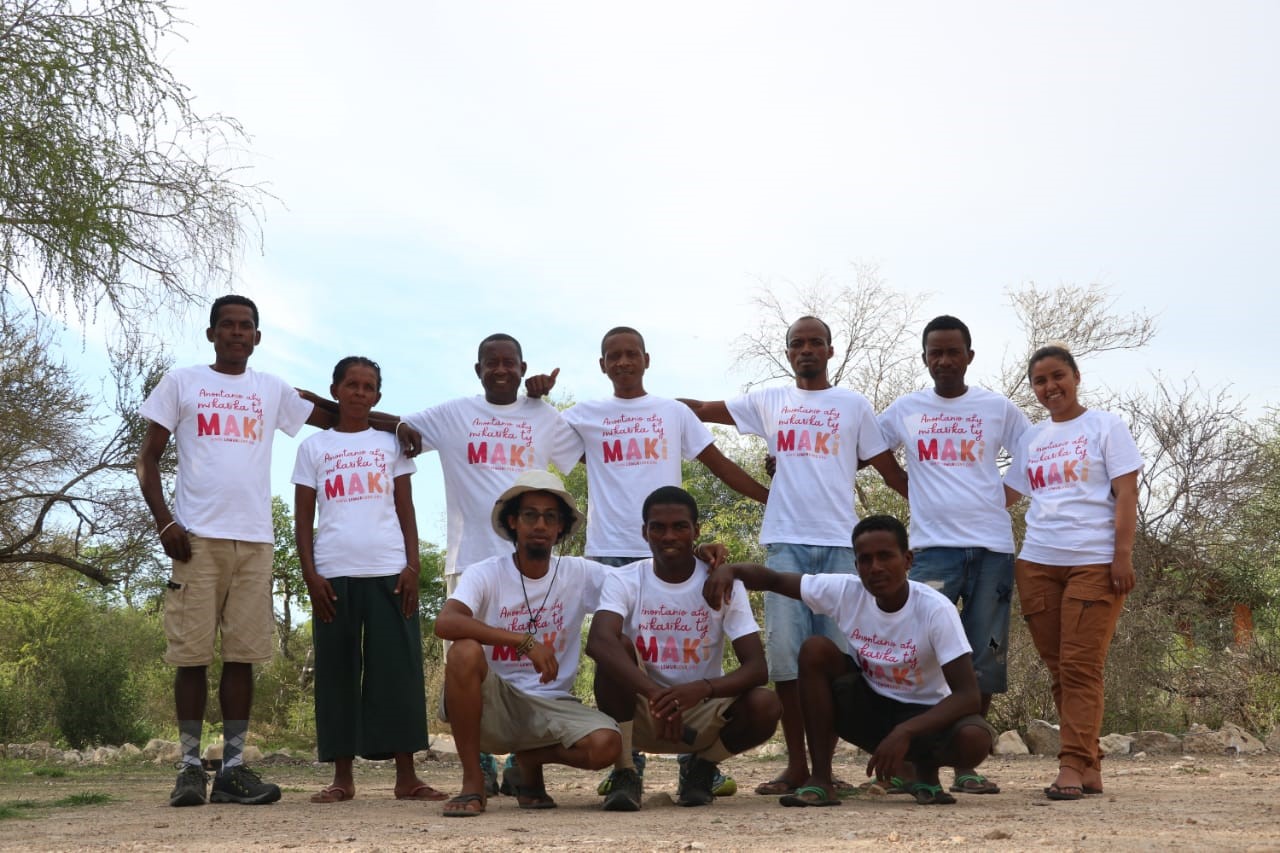 The Field Team posing with their "Ask Me About Lemurs" t-shirt
The Field Team posing with their "Ask Me About Lemurs" t-shirt
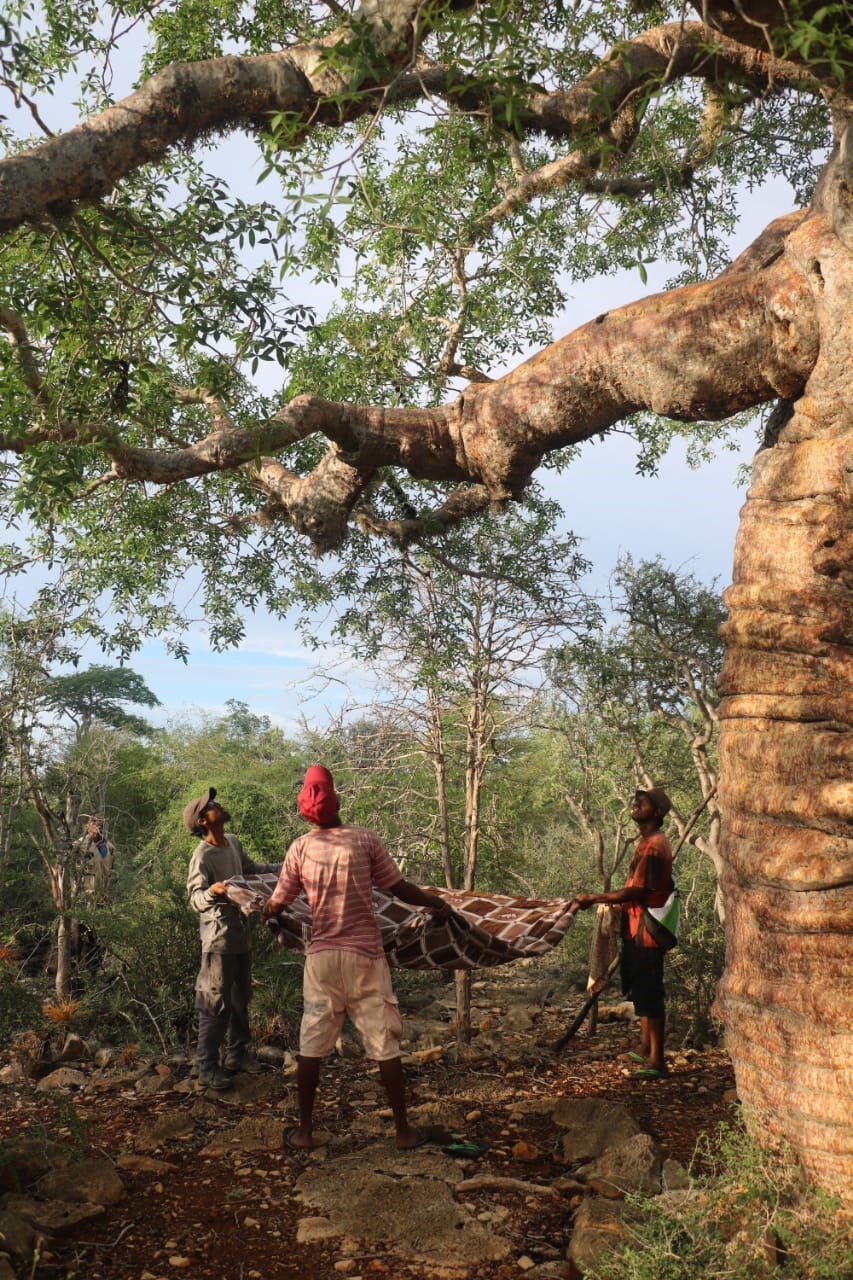 Field team waiting to safely catch a lemur once the anesthesia kicks in
Field team waiting to safely catch a lemur once the anesthesia kicks in
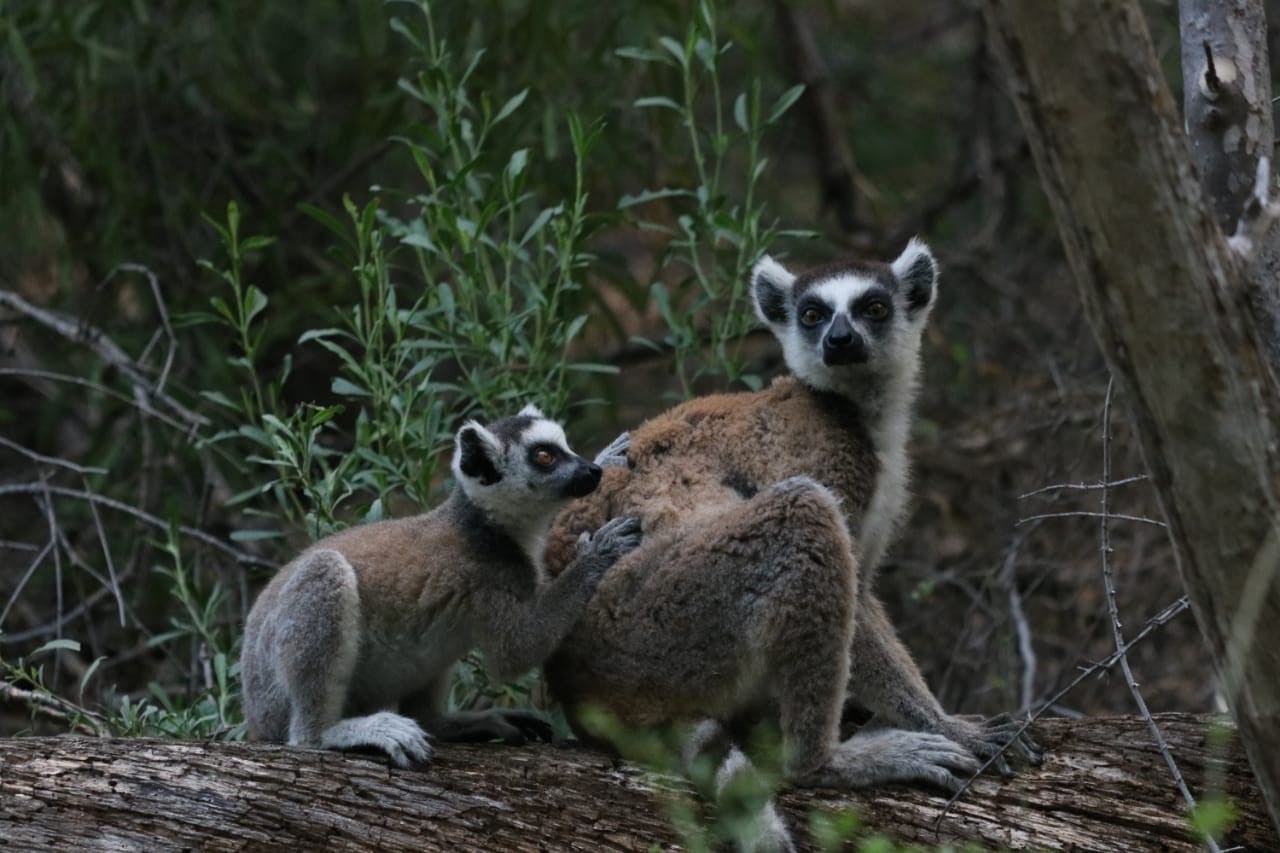 A ring-tailed mom and her youngster
A ring-tailed mom and her youngster
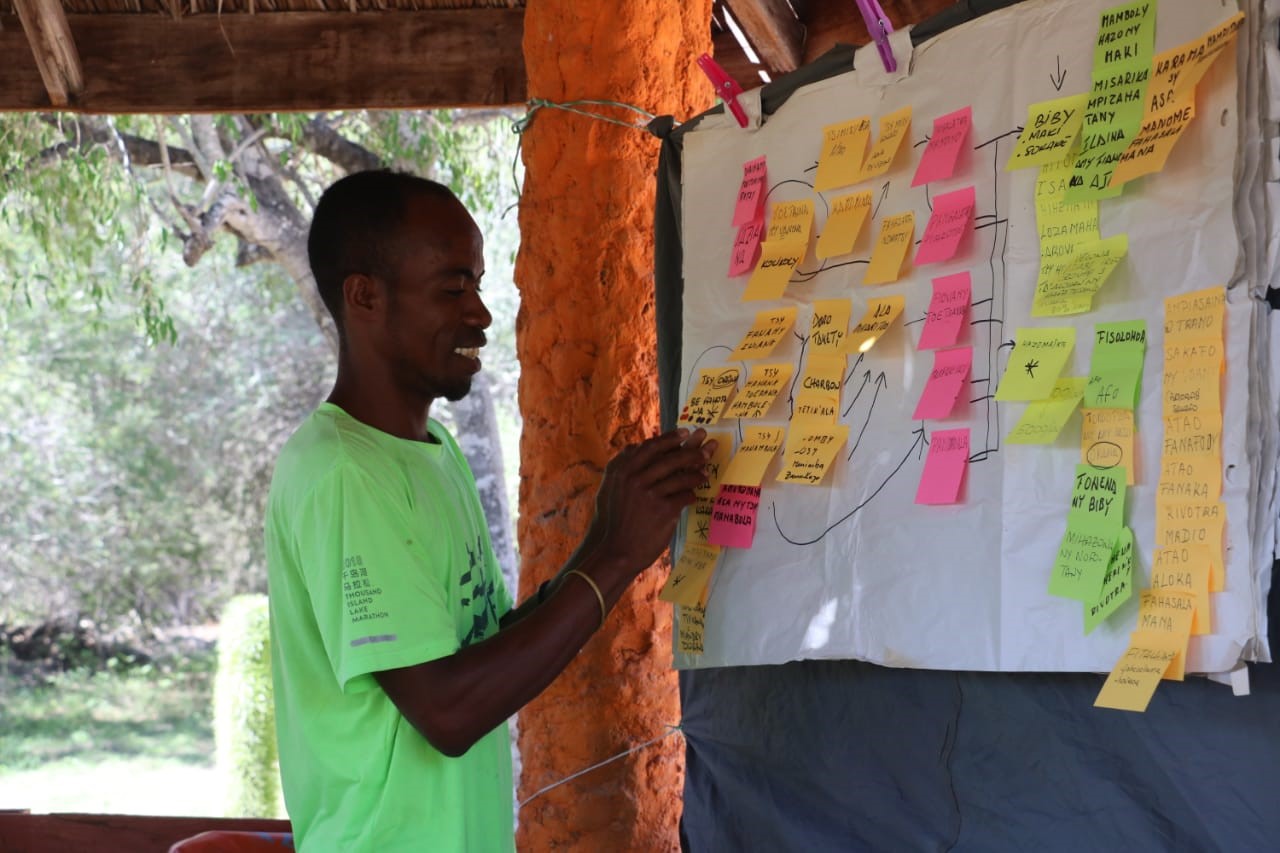 Community-based conservation training with Lemur Love's forest rangers
Community-based conservation training with Lemur Love's forest rangers
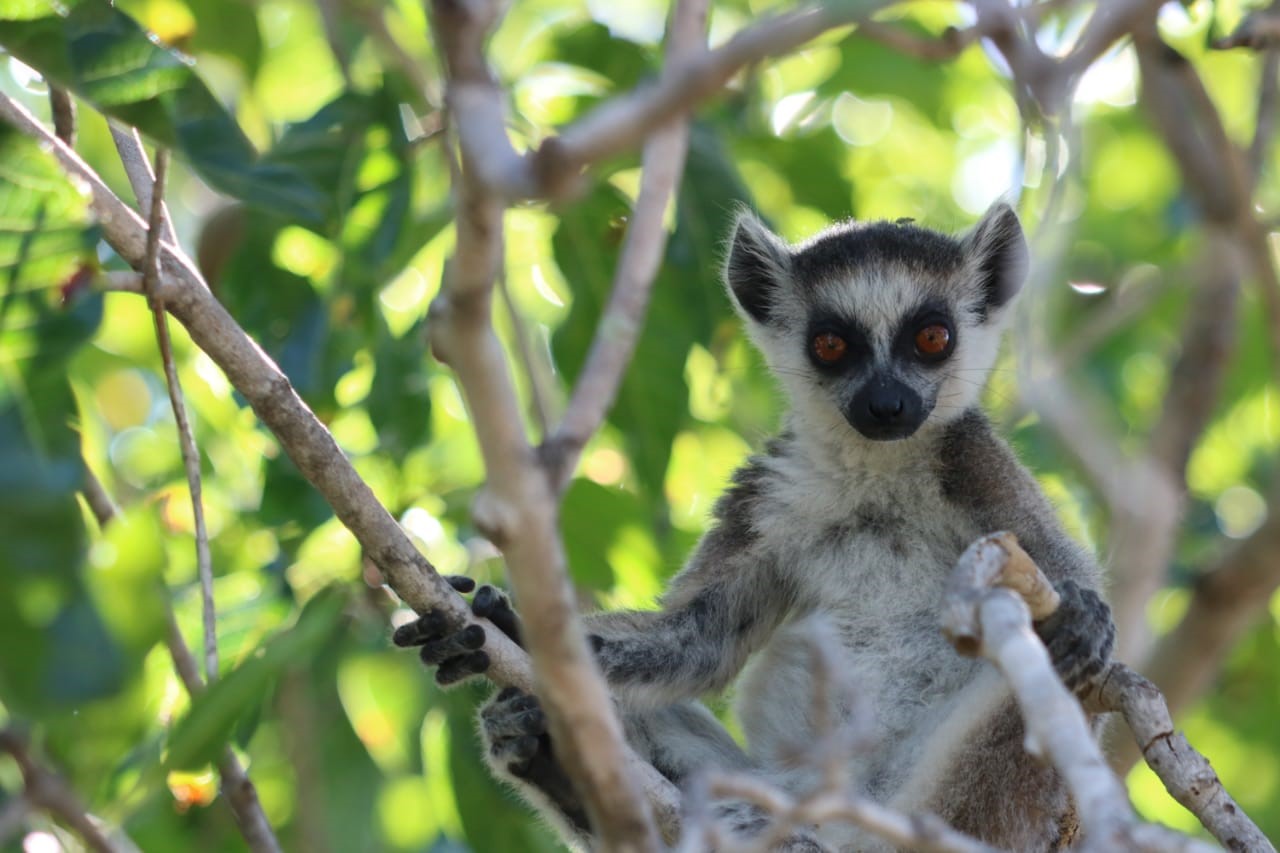 A Juvenile Ring-tailed Lemur
A Juvenile Ring-tailed Lemur
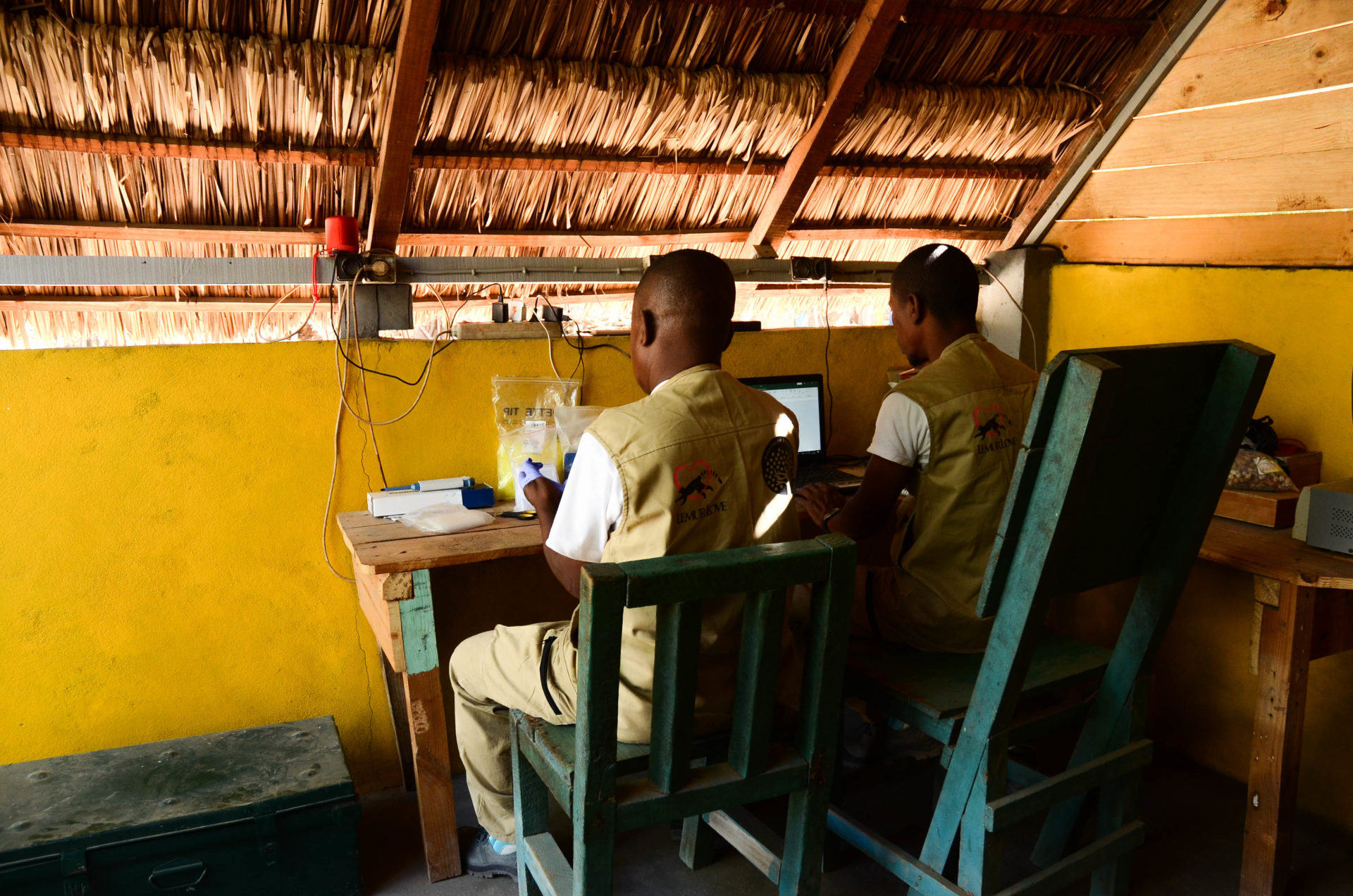 Ranger team located in Tsimanampesotse National Park (TNP).
Ranger team located in Tsimanampesotse National Park (TNP).
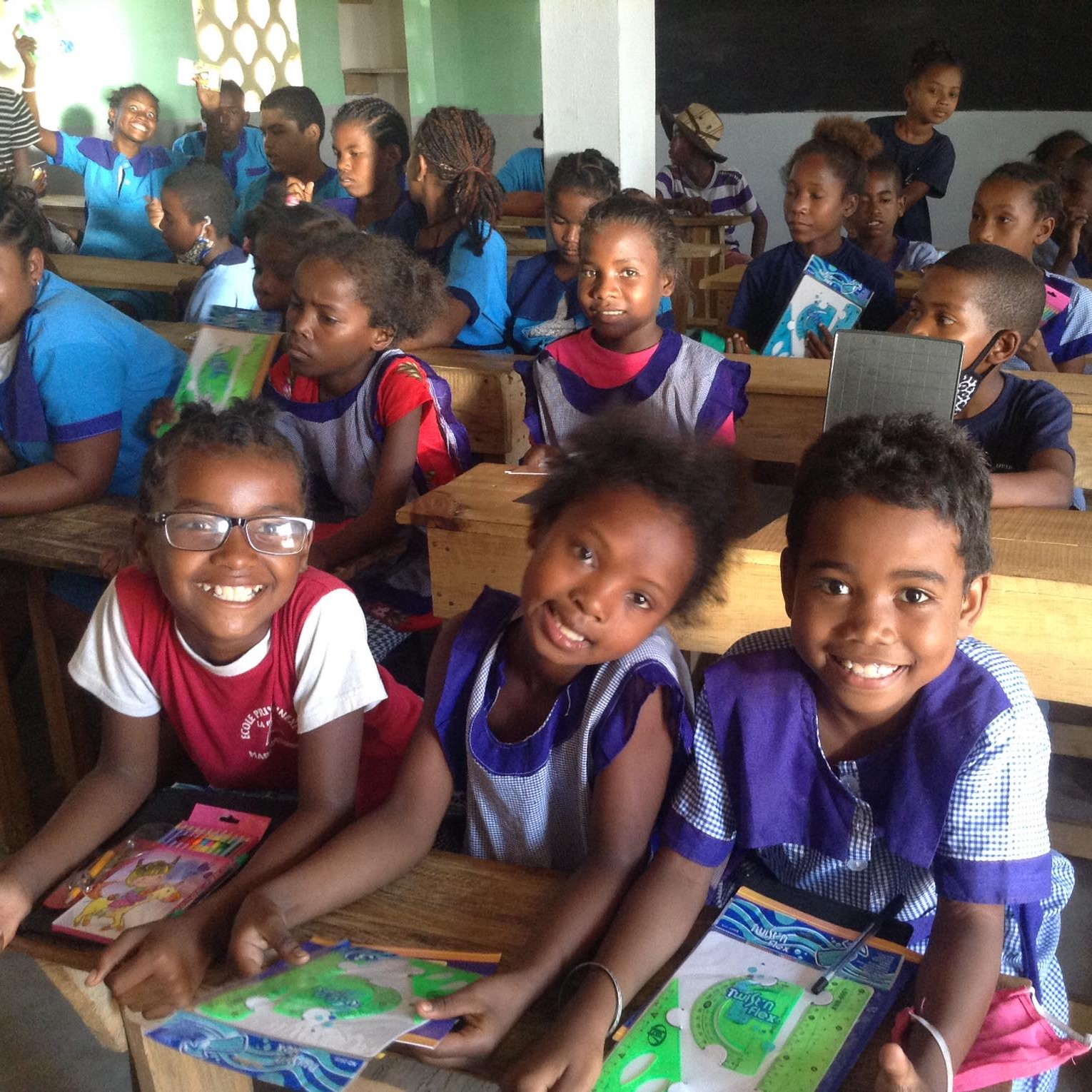 Mangily, another village Lemur Love has supported. There are about 400 kids at the La Marmaille school.
Mangily, another village Lemur Love has supported. There are about 400 kids at the La Marmaille school.
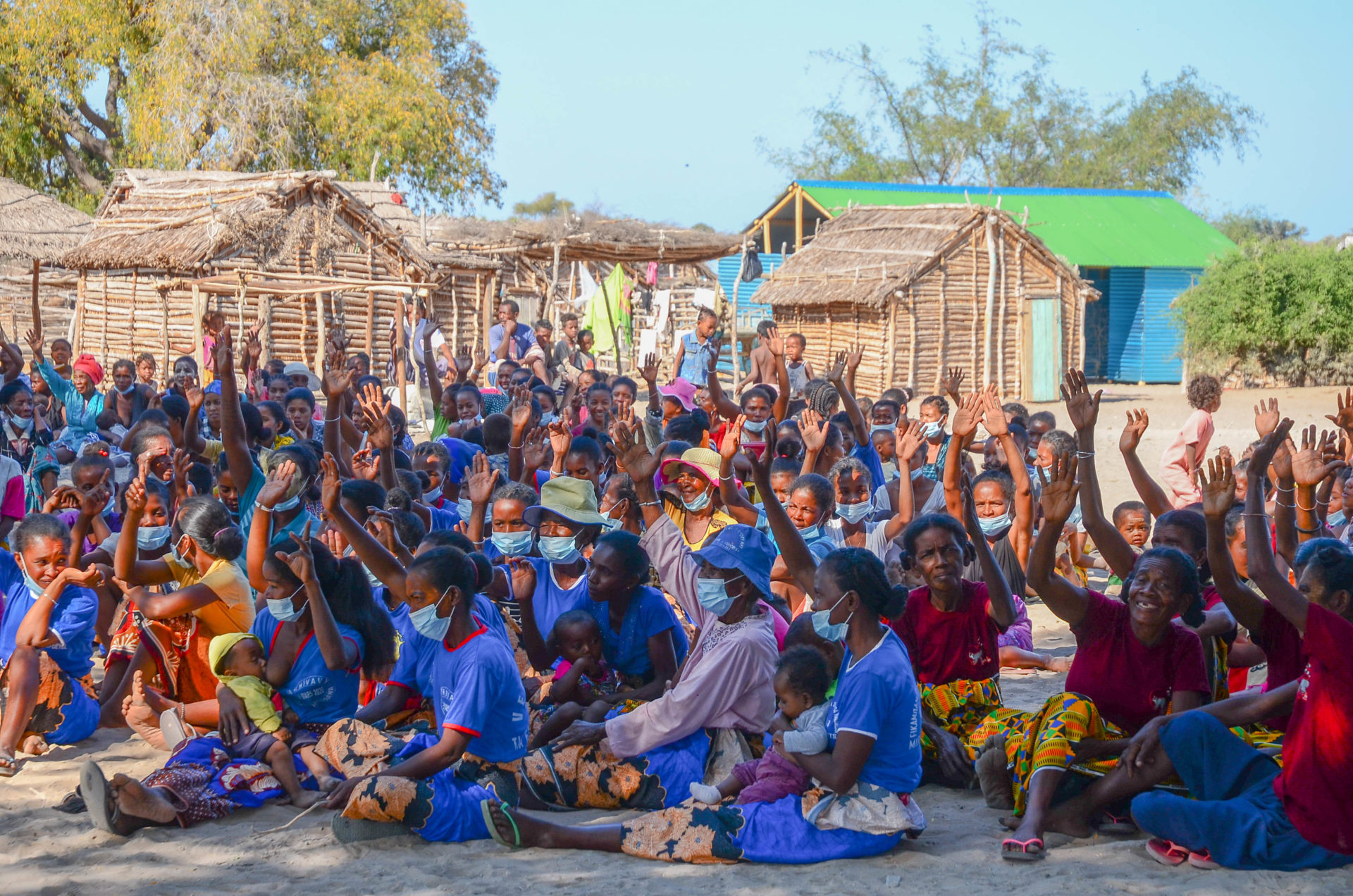 Meeting with locals from Efoetse, the village nearest TNP.
Meeting with locals from Efoetse, the village nearest TNP.
